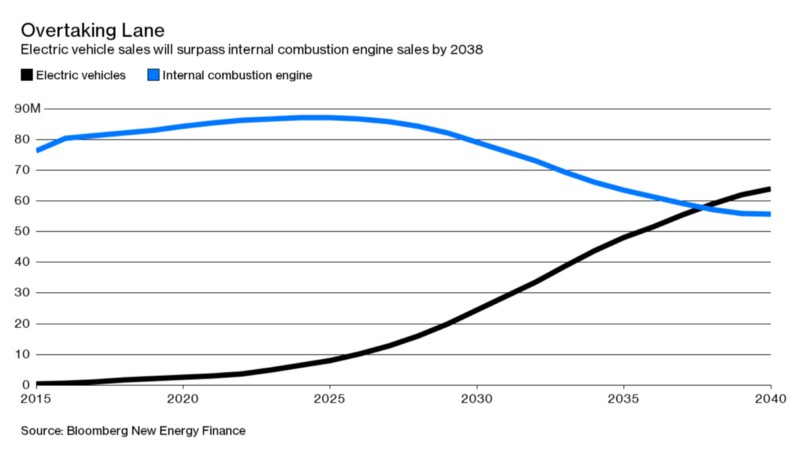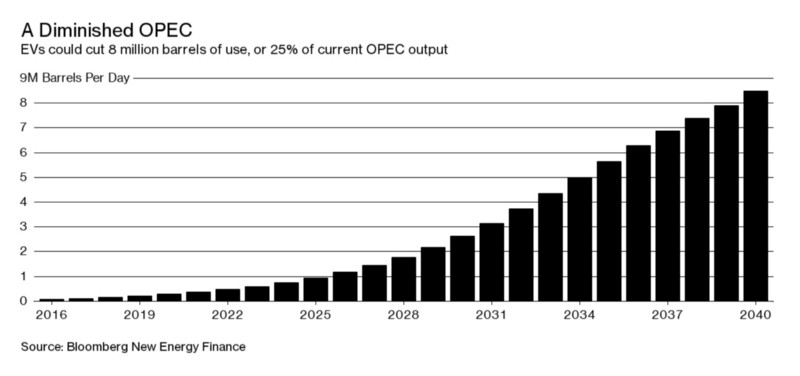The UK will ban the sale of new petrol and diesel cars and vans by 2040 to reduce pollution and improve public health, its government is announcing Wednesday. The UK joins a growing list of countries — including India, France, and Norway — with similar plans to phase out fossil fuel-burning cars.
Peak oil demand is now in sight thanks to plummeting prices for electric batteries. “Electric cars will outsell fossil fuel-powered vehicles within two decades as battery prices plunge,” Bloomberg New Energy Finance (BNEF) forecasts, “turning the global auto industry upside down and signaling economic turmoil for oil-exporting countries.”
Following the lead set by France, by 2040 the UK will only allow the sale of cars that have zero tailpipe emissions, meaning the ban extends to hybrid vehicles. The UK environment department explained its decision was rooted in concern for public health: “poor air quality is the biggest environmental risk to public health in the UK and this government is determined to take strong action in the shortest time possible.”
A stunning 73 percent drop in lithium-ion battery prices since 2010 have enabled these future bans. BNEF projects this trend will continue for at least two decades, with electric vehicles (EVs) becoming as cheap as gasoline cars by 2025, but then quickly becoming cheaper.
This price flip will lead to a sales flip, with EV sales surpassing those of petrol-powered cars in the 2030s, according to BNEF.

Given that EVs will soon be cheaper to buy than petrol cars — and that EVs are much cheaper to maintain and fuel — some countries are on a faster timetable than the UK.
India has vowed to sell only electric vehicles by 2030. Their energy minister expects that after a few years of subsidies, “the cost of electric vehicles will start paying for themselves.” India is also motivated by its desire to reduce not only CO2 emissions but all forms air pollution, which one study shows kills more than 1 million Indians a year.
Norway, where EVs already have a record 37 percent share of the car market, has an even more aggressive timetable. Norway’s transportation minister says it is “realistic” that sales of new ICE cars could end by 2025
The EV revolution will roil oil markets. BNEF projects that by 2040 EVs will displace more than 8 million barrels of oil a day — more oil than Saudi Arabia exports today.

But the impact on the oil industry will occur much sooner. The credit rating agency Fitch warned in October that the EV and battery revolutions could “tip the oil market from growth to contraction earlier than anticipated.” This will lead to an “investor death spiral” as first the smart money — and then everyone else’s — sell off oil company assets (bonds and stocks) currently valued at trillions of dollars.
BNEF pointed out last year that a global glut of just 2 million barrels a day is what triggered the 2014 oil price collapse. They’ve already told investors to expect the big crash in oil by 2028 — and possibly much earlier.
We are reaching peak oil demand faster than anyone expected. No one can predict exactly when the next crash occurs, but Bloomberg has offered this wise advice:
“One thing is certain: Whenever the oil crash comes, it will be only the beginning. Every year that follows will bring more electric cars to the road, and less demand for oil. Someone will be left holding the barrel.”

